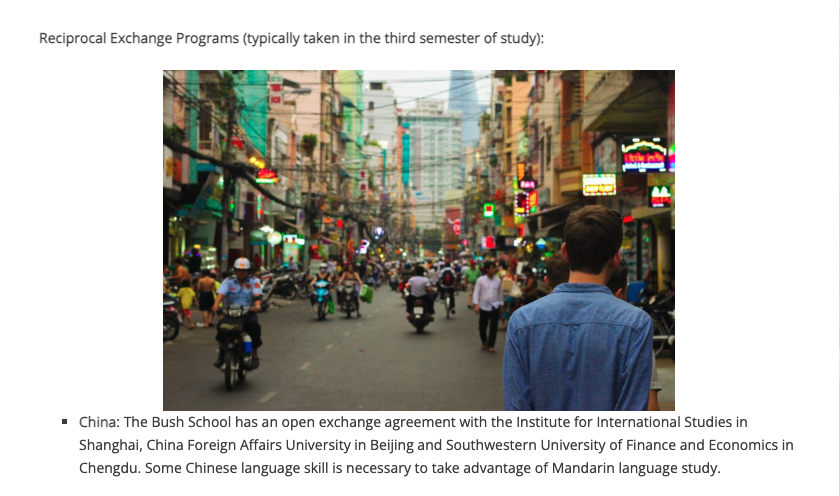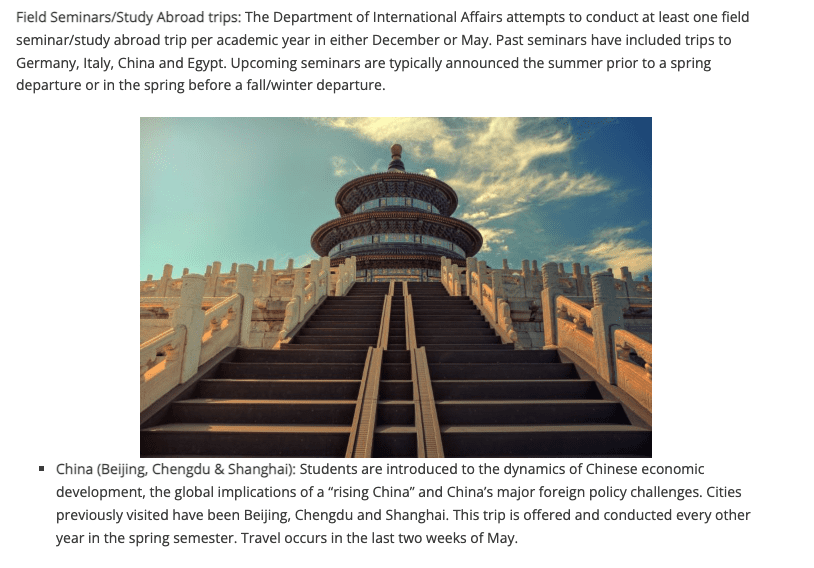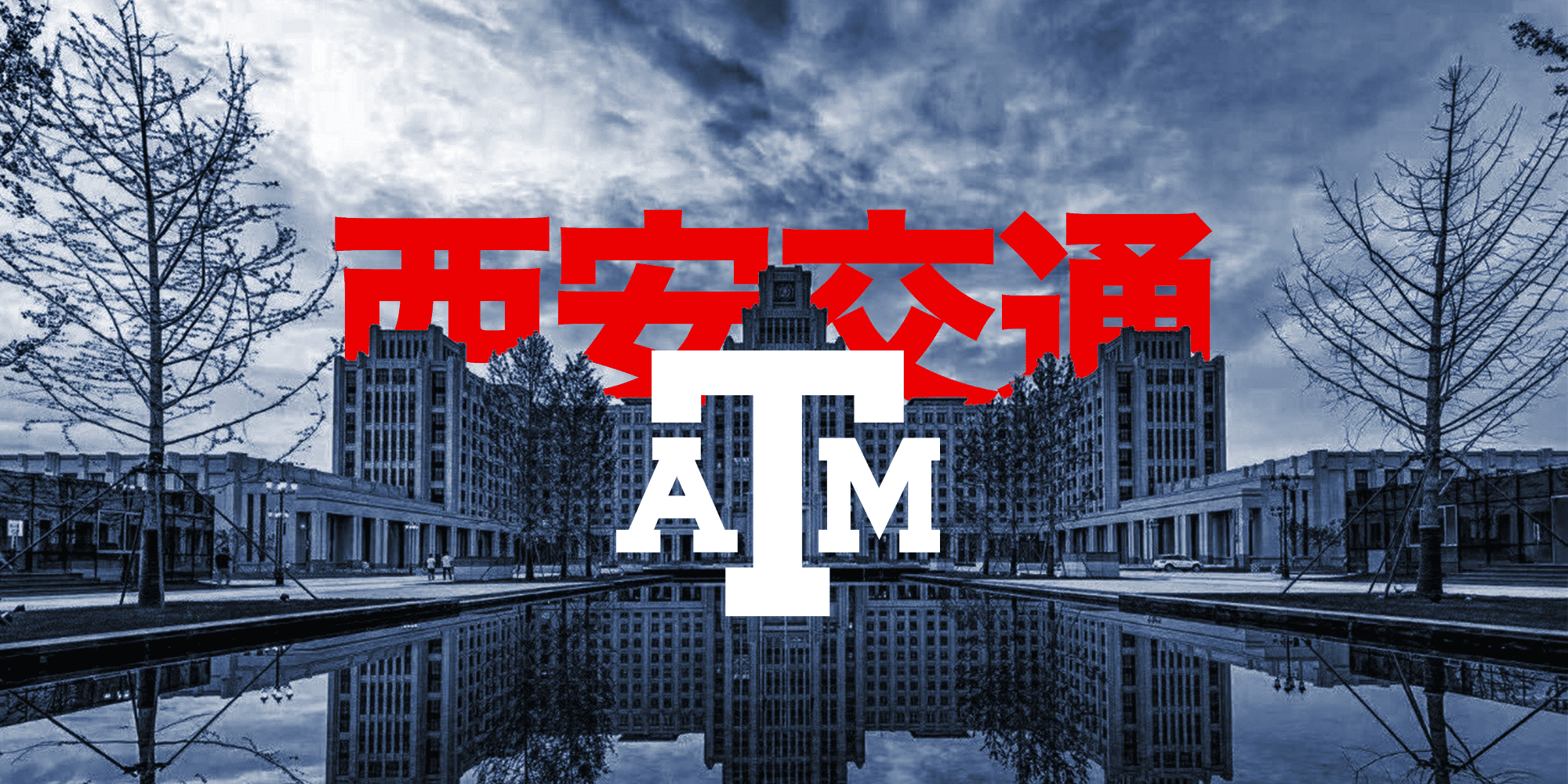It is well documented that Texas A&M has had connections with entities controlled by the Chinese Communist Party. The university claims that after 2021, they have “terminated all high-risk engagements,” yet admit to still having a connection with a CCP-controlled entity.
In a statement to Texas Scorecard, a Texas A&M spokesperson said they had “conducted a 100 percent review of all signed formal agreements associated” with Russia, China, Iran, and North Korea. Records of this review have been requested, and this disclosure raises as many questions as answers.
In addition to this, questions remain about Texas A&M’s handpicked next president, Mark Welsh, and his susceptibility to Chinese Communist Party (CCP) influence.
In November 2023, Texas Scorecard first examined the Chinese Communist Party infiltration of the University of Texas. This is not an isolated event. A continuing investigation has uncovered instances of CCP ties with Texas A&M University and a U.S. defense contractor.
Such relationships coincide with a pattern of universities across Texas being transformed into indoctrination centers. Concurrently, these state institutions have exposed themselves to significant geo-political threats.
Defining the Threat
For this investigative article, Texas Scorecard interviewed J. Kyle Bass, co-founder of the Committee on the Present Danger: China. He said that acknowledging and addressing the threat the CCP poses is not racism or bigotry. “We have a long standing relationship in the Pacific Rim with the Philippines. We have relationships with Japan, with Cambodia, and Vietnam,” he said. “This has nothing to do with Asian hate. It has everything to do with national security and malign state actors, period.”
Bass then gave clarity on the current status of the threat the Chinese Communist Party poses to the United States of America. “China is fomenting division, fomenting chaos,” Bass said. The example he gave was the Israel-Hamas War of 2023. Bass said that on October 7, the day Hamas committed atrocities against the Israeli people, TikTok’s algorithm pushed pro-Hamas content eight to one versus pro Israel content. “We don’t have a propaganda department in the U.S. We are affording China battlefield asymmetry in the battle of data and propaganda,” he explained. “Now we have a physical threat with Chinese military age males sneaking into the U.S., walking across the U.S border.” On December 4, 2023, Texas Scorecard reported that U.S. Customs and Border Protection agents saw more than 4,200 Chinese nationals in October. Texas Gov. Greg Abbott warned Chinese nationals crossing the southwest border is an “existential threat.”
Bass also said America and the CCP have been engaged in a cyber war since China was allowed into the World Trade Organization in 2001.

Chinese President Xi Jinping
“They don’t operate by rules,” Bass warned. “They have a rule by law, and we have a rule of law.”
It’s also important to note how grossly immoral the CCP is. Bob Fu, a Chinese refugee and president of China Aid, a Christian non-profit “committed to promoting religious freedom and the rule of law in China,” spoke with Texas Scorecard about how the party oppresses the Chinese people. He said if in China you lift up a blank piece of paper on the street, you are subject to torture and “forced disappearance” for months or years. You can be punished for what you post on social media. If you distribute Bibles in China, you get a 15 year prison sentence. If you manage a house church without permits, you face a 12-14 year prison sentence. “Nobody wants to live under this kind of a fearful condition,” Fu said. “But we as Texans certainly want to love [the Chinese people] and care about them. But at the same time, certainly as I just mentioned, we can take individual action to make correct discernment who are here [in America] with the clear task by the CCP Security agents, and who are coerced, who are forced [by the CCP].”
“Ultimately, the CCP is the cancer of the world,” Fu said. “The CCP is the most dangerous threat to our existence, our way of life, [and] our national security.”
Backstory
Texas A&M has a history of concerning foreign cooperations that are coming under additional scrutiny, as detailed in a previous Texas Scorecard investigative report.
As the Israel-Palestine war of 2023 escalated, A&M’s contracts with those neighboring the highly controversial Qatar government were highlighted, particularly after Qatar’s foreign minister released a statement that said they hold Israel “alone responsible for the current escalation.”
Despite Qatar’s connections with terrorism, and their condemnation of the State of Israel, Texas A&M appears to be doubling down on maintaining its ties with the hostile government. Kelly Brown, Texas A&M’s Associate Vice President of their Marketing & Communications Division, recently told The Free Press that “maintaining relationships with countries like Qatar serve a broader purpose, including fostering international dialogue and cooperation.”
Texas A&M’s relationship with Qatar is focused on educational and research activities, which contribute to the academic and intellectual development of both countries. That, in turn, hopefully will one day lead to peaceful resolutions rather than conflict.
Apparent blindness by government higher education to threats by hostile foreign governments is common.
Texas Scorecard’s November 2023 investigative report of the University of Texas found multiple infiltrations of the Chinese Communist Party into their system allowed by the university’s board of regents.
The widely reported threats the CCP poses to the United States, including in the 2023 Annual Threat Assessment by the U.S. Director of National Intelligence (DNI), raise questions about the management of state universities. “China’s Communist Party (CCP) will continue efforts to achieve President Xi Jinping’s vision of making China the preeminent power in East Asia and a major power on the world stage,” the DNI report states. “As Xi begins his third term as China’s leader, the CCP will work to press Taiwan on unification, undercut U.S. influence, drive wedges between Washington and its partners, and foster some norms that favor its authoritarian system.”
Yet in the name of international cooperation, Texas government universities risk compromising national security and welcoming CCP propaganda.
Bad Buys
In 2021, Congress agreed to ban certain Chinese telecommunications equipment for national security reasons, “citing concerns about the companies’ close ties to Beijing and the potential for bad actors to exploit vulnerabilities in the technologies to conduct cyberespionage operations or cyberattacks on U.S. critical infrastructure.”
This ban followed the 2019 National Defense Authorization Act, which mandated the removal of such products from government use. It was enacted due to surveillance companies’ associations with the CCP, including their stakeholders and leadership. Mass espionage was another concern, particularly because of Article 7 of the Chinese National Intelligence Law, which reads, “Any organization or citizen shall support, assist, and cooperate with state intelligence work in accordance with the law . . .”
Targeted Chinese companies included in the American security measures were Hikvision and Dahua. Texas A&M has previously purchased products made by both companies.
Texas A&M’s AgriLife Research purchased Hikvision surveillance cameras on four occasions in 2018. Texas A&M International University purchased nearly $5,000 worth of Dahua products on March 15, 2019.
In their response to our questions, the university did not provide Texas Scorecard with an answer directly addressing whether or not these devices are still in use.
But Texas A&M’s ties with CCP adjacent actors go beyond buying products.
Questionable Connections
Despite multiple red flags about the threat of Red China, Texas A&M has accepted money from the CCP.
As previously reported, the university received a substantial $10 million donation from Communist China to collaborate with the Qingdao National Laboratory for Marine Science and Technology Development Center. The reported purpose was to advance the research and development of Earth modeling technology. The agreement’s stated timeline was from July 2018 to July 2023.
“I used to think universities were victims,” an intelligence official told ProPublica. “But now I think those that take money from China and don’t protect their students from [People’s Republic of China] harassment may be complicit.”
Furthermore, universities’ silence regarding issues like antisemitic pro-Palestine student groups may also be influenced by economic benefits from foreign donations. Records from Judicial Watch reveal that Texas A&M received over $485 million in grants and contracts from the Qatar Foundation, which is known to fund Hamas.
Beyond these concerns, universities risk compromising research security, as well as aiding and abetting an American enemy. The U.S. State Department has warned of the CCP’s strategy of Military-Civil Fusion (MCF), which seeks “cutting-edge research and technology” from foreign universities. The CCP wants to have a “world-class military” by 2049.
Texas A&M has previously collaborated with one CCP University. In 2013, their Nuclear Engineering Department had an agreement with Xi’an Jiaotong University—a university the Australian Strategic Policy Institute found was “high-risk” and holds “secret-level security credentials.”
In 2019, the U.S. government added Xi’an Jiaotong University’s School of Electrical Engineering to the government’s Unverified List. “It was removed from the list in October 2020 alongside other entities that were ‘no longer registered to do business in the listed country and are no longer involved in U.S. exports,’” the ASPI report states. “The total number of designated defense research areas at XJTU is unknown. Nuclear energy science and engineering is the only defense discipline at the university that has been identified.”
ASPI states that Texas A&M no longer has this collaboration with Xi’an Jiaotong University. The identified security risks of the CCP university, combined with Texas A&M’s status as a U.S. defense contractor, raise questions about whether American national security was compromised during their relationship.
The connections do not end there.
The Bush Connection
Texas A&M’s Bush School of Government and Public Service is considered a top school for U.S. intelligence agencies with “the facilities to discuss and store classified information,” military commissioning, and international affairs with high-profile alumni. As previously reported, the Bush School has also supplied key state political appointees.
The school has also become a hotbed for leftist dogma. On June 6, 2020, amid the summer of riots following the death of George Floyd, then-Bush School Dean Mark Welsh published a memo where he wrote that he believes White Privilege exists. He also expressed support for the phrase “Black Lives Matter.” This phrase was regularly deployed in 2020 not to argue for equal rights but to justify lawlessness and radical leftist policies.

Mark Welsh
Welsh also has a history of promoting the woke, and business-killing, ideology of Diversity, Equity, and Inclusion. The Texas A&M Board of Regents has picked him as the finalist for the next president of the university. He had served as dean of the Bush School since 2016. Prior to 2016, he served in the U.S. Air Force as a four-star general and Obama appointee to the Joint Chiefs of Staff.
Such ideologies being taught to students of the Bush School, who typically become government employees, is troubling. But it also makes those in higher education vulnerable to being co-opted by the Chinese Communist Party.
An article by the Hoover Institution detailed how the CCP’s propaganda department led efforts to win over Americans through their sympathies with “woke” movements. This knowledge throws a different red flag on Mark Welsh and his vulnerability to CCP influence.
A closer study of the Bush School, which he used to run, reveals more red flags about Welsh, the Bush School, and Texas A&M in general.
Under the Reciprocal Exchange Program section of their website, the Bush School advertised open exchange programs with the Institute for International Studies in Shanghai, the China Foreign Affairs University in Beijing, and the Southwestern University of Finance and Economics in Chengdu. Texas Scorecard sent inquiries to the Texas A&M Board of Regents regarding our findings.
Kelly Brown, Texas A&M’s Associate Vice President of their Marketing & Communications Division replied in part on November 30, “Following a thorough review across the Texas A&M University System in 2021, officials with System entities terminated all high-risk engagements. As a result, we have no active research agreements with any countries of concern (including China),” she wrote. “Texas A&M University currently has two student exchange agreements with one university in China – the Hong Kong University of Science and Technology.” Brown noted that these existing education abroad agreements with the Hong Kong University of Science and Technology are through Texas A&M’s College of Engineering and Mays Business School.
Despite saying they only have two student exchange agreements with one Chinese university, J. Kyle Bass, co-founder of the Committee on the Present Danger: China, cautions that even this poses a threat. “Any relationship with any Chinese University can be deemed to be problematic because of the overwhelming influence that the Chinese Communist Party has,” Bass told Texas Scorecard. “Every single University in China is at the pleasure of the Communist Party.” He added that they are required to push Xi Jinping Thought and follow Chinese law.
Texas Scorecard asked Brown what prompted the 2021 review, and if there had been any security breaches before then that had prompted ending agreements. “The 2021 review was a proactive effort of our nationally recognized research security program that began in 2016. We created a high-risk Global Engagement Policy to provide System-level guidance for reviewing and approving all relationships with one of the four countries of interest: Russia, China, Iran and North Korea,” Brown replied. “The TAMU System conducted a 100 percent review of all signed formal agreements associated with the four high-risk countries.”
While Brown’s statement claimed Texas A&M University only has two student exchange agreements with one Chinese university, as of November 30, 2023, the Bush School website still advertised the earlier referenced open exchange programs.

Source: Texas A&M Bush School
It also boasted a study abroad program to Beijing, Chengdu, and Shanghai.

Source: Texas A&M Bush School
Texas Scorecard sent Brown a follow-up inquiry and asked if the Bush School website was outdated or if these agreements were still in effect. “The website is unfortunately out-of-date. Action is being taken now to update the information,” Brown replied. As of December 1, 2023, the Bush School website now does not list any study abroad or open exchange programs with China.
Texas Scorecard had also asked Brown when these open exchange agreements ended. She did not provide an answer in her response. Texas Scorecard has sent an open records request, under the Texas Public Information Act, for these agreements.
Despite Brown’s statement, the website for the China Foreign Affairs University still lists Texas A&M as among their “long-standing partnerships and collaborative links covering student exchange, staff exchange and joint research,” and one of their “major partners.” Texas Scorecard utilized the “javascript:alert(document.lastModified)” instruction in Apple’s Safari Browser’s Web Inspector to determine when this website was last updated. The response was November 7, 2022. This date would be after the 2021 “thorough review” Brown said A&M conducted, which she said led to the termination of “all high-risk engagements.”
China Foreign Affairs University has a Chinese Communist Party Committee Secretary position in their leadership, currently filled by Ambassador Cui Qiming.
The Southwestern University’s website lists an “exchange program” with Texas A&M, but the dates given for all exchange programs on that page started in March 2015 and would last at most until January 2016, except for one that ended in July 2016.
A deeper dive into these universities raises alarms as to why the board of regents of Texas A&M, a U.S. defense contractor, allowed any relationship with these CCP-run universities.
The Southwestern University of Finance and Economics boasts about creating Confucius institutes on their school profile webpage. As previously reported in Texas Scorecard’s investigative report in 2022, Confucius Institutes and Confucius Classrooms were part of the CCP’s efforts to infiltrate the American education apparatus. It successfully penetrated into Texas. Chinese President Xi Jinping’s predecessor, Hu Jintao, said that the Institutes were a way “to cultivate and prepare a group (or army) of people to make sure the CCP will be in power in the future … and increase our CCP influence around the world.”
The Chinese Communist Party is still executing such infiltration efforts. According to the 2023 DNI report, “Beijing uses a sophisticated array of covert, overt, licit, and illicit means to try to soften U.S. criticism, shape U.S. power centers’ views of China, and influence policymakers at all levels of government,” it states. “Beijing has … redoubl[ed] its efforts to build influence at the state and local level to shift U.S. policy in China’s favor because of Beijing’s belief that local officials are more pliable than their federal counterparts.”
Returning to Southwestern University, this institute boasts that their school “adheres to the guidance of Xi Jinping’s Thought on Socialism with Chinese Characteristics for a New Era.” According to Southwestern University’s website, the school was “approved by the Propaganda Department of the Central Committee of the Communist Party of China as one of the first batch of National Socialist Political Economics Research Centers with Chinese Characteristics.”
Pushing Jinping indoctrination materials appears to be part of a national CCP effort in China. Through a new propaganda initiative, the study of Xi Jinping’s writings on Marxist-Leninist theory has been included in the constitution of the CCP and written into the national school curriculum. Andy Mok, a senior research fellow at the Center for China and Globalization in Beijing, told Al Jazeera that this effort is to stifle independent thinking. State institutions like banks are required to study the writings as a form of ideological training. “I interpret these study sessions as rituals. These rituals primarily serve the purpose of ensuring continued loyalty to the regime leader,” Carsten Holz, a Hong Kong professor, told Al Jazeera.
Next is the open exchange program with the China Foreign Affairs University. This institution is known as the “cradle of Chinese diplomats” because its alumni often take roles in governmental departments and Chinese embassies. The chairman of the board of trustees at the university is CCP Foreign Minister Wang Yi, who in a June 2016 press conference accused a Canadian journalist of “prejudice against China and arrogance.” This was after the journalist raised a question about Canada’s relationship with China. According to Nikkei Asia, such responses are an example of the CCP’s “wolf warrior diplomacy,” which is “responding aggressively when foreigners criticized Beijing.” Nikkei Asia notes Yi has sided against Israel in the current Israel-Hamas War.
There is still the question of the two two student exchange agreements with the Hong Kong University of Science and Technology that Brown confirmed still exists. While the Australian Strategic Policy Institute’s “China Defence Universities Tracker” has no ranking for the Hong Kong University of Science and Technology, they did publish an April 2021 article warning about the changes the Chinese Communist Party was making in the now enslaved city of Hong Kong. “In its efforts to remake Hong Kong into a city in its own image, the Chinese Communist Party has created a new security apparatus and court system to enforce new national security laws,” the article states. “They are overhauling the education system to weed out Western-inspired ‘liberal studies’ and shape young minds to love China.”
In any relationship with any organization in China, one must calculate that the CCP has an agenda.
The earlier referenced Hoover Institution article states the CCP’s propaganda department works to minimize the idea that China is still ruled by the CCP. The Hoover Institution reported that, according to the Vice-Consul of Culture, Propaganda, and Exchange in the PRC’s San Francisco Consulate General, the goal is to ideologically capture intellectual and social elites in the U.S. to function as the CCP’s proxies, “Many of our leading universities and their talented professors often are co-opted by the CCP to voice Beijing’s views in the U.S., masqueraded as research and objective surveys,” the report stated.
CCP propagandists see American elites’ egos, business interests, and curiosity about Chinese culture as an opportunity to capture leading businesses, universities, and professors to perpetuate CCP agendas. “A senior American official will be told he or she is, if not a ‘friend of China,’ then at least someone who really ‘understands China,’ as other Americans supposedly do not,” James Mann, a Los Angeles Times reporter on China, told Foreign Policy in an article entitled “The Endless Frustration of Chinese Diplomacy.”
In her original statement, Brown boasted of Texas A&M’s security measures. “Each of our international agreements is regularly reviewed by Texas A&M University personnel, as well as by The Texas A&M University System’s Research Security Office. The System entities also work regularly with the FBI and members of Congress on security matters.”
There is a key link that could explain these CCP connections with the Bush School, and Texas A&M in general: Neil Bush. One of the sons of former President George H. W. Bush, Neil serves on the advisory board of the Texas A&M Bush School of Government. He is also the founder of the George H. W. Bush Foundation for U.S.-China Relations, an organization that pushes for closer ties with China and works with organizations directly linked to the CCP. Texas Scorecard previously reported about the Bush Foundation and its CCP bias.

Neil Bush and Texas A&M Bush School of Government and Public Service.
Bush said in 2019 that the U.S. should stop treating China as a threat. “China is not an economic enemy or existential national security threat to the United States … The demonization of China is being fuelled by a rising nationalism in the US that is manifested in anti-immigrant, anti-Chinese, pro-America-first rhetoric.”
Such rhetoric flies in the face of the 2023 DNI Annual Threat Assessment. “Beijing is increasingly combining growing military power with its economic, technological, and diplomatic influence to strengthen CCP rule, secure what it views as its sovereign territory and regional preeminence, and pursue global influence,” it states. “The Government of China will continue pursuing its goal of building a world-class military that will enable it to try to secure what it views as its sovereign territory, attempt to establish its preeminence in regional affairs, and project power globally while offsetting perceived U.S. military superiority.”
Bush’s attitude towards China suggests that the CCP may have accomplished one of their goals when converting an ally in America. A book entitled “Hidden Land” explored Neil Bush’s links with China and why he may be considered an elite “friend.” An Axios summary of the book states, “China’s leaders have sought to ensure the U.S. doesn’t treat China like an enemy, no matter how hard Beijing works to undermine democratic institutions and interests around the world.”
Student Exchange Agreements
There is another cause for concern regarding any exchange program where Chinese students come to study at a Texas university. It is the question of whether or not the Texas university in question works to ensure Chinese students are not put in an impossible position while here. Bob Fu, a Chinese refugee, has warned that the CCP oppression of the Chinese reaches even outside their country’s borders. He told Texas Scorecard that as of 2023, “every Chinese citizen is legally obligated to spy anywhere in the world for China. There is no exception.” Fu said if traveling Chinese citizens refuse to spy and their family members are still in China, then those relatives at home “more or less will be held hostage.” Such oppression of Chinese students has been previously examined in a Texas Scorecard investigative report. This report also covered the CCP’s targeting of Fu for warning Texans and Americans of the Communist Chinese government threat.
J. Kyle Bass confirmed Fu’s warning. “Their new anti-espionage law basically activates every single Chinese citizen to spy on their neighbors and to basically never transfer anything that seemed to be technological data to anyone outside of mainland China,” he cautioned.
Fu described what it was like for Chinese to live under the oppressive CCP regime. “Horrible fear. You live under fear constantly,” he said. Fu recalled an experience when he used to live in Pennsylvania. A graduate classmate of his, who worked for the CCP government in New York City, came to Fu’s house. “I was very confused and really surprised. He was like almost teaching me [a] Communist Party propaganda lesson in my own house. Once we walked out our house on the street, he became a different person, and [told] me he had to do that because he was afraid my house might be bugged by the Chinese agents.”
Fu also spoke to what Chinese students studying in America may be experiencing. “Many of them, I guess, are very nervous about the prospect of being monitored in the classroom [and on] the campus.”
Texas Scorecard asked Bass if there was any way to protect visiting Chinese students from the CCP. “There’s no way,” he replied. “There is no way to kind of separate the good from the bad, or the potential problems from the no problems.” In his reasoning, he echoed what Fu said about how the CCP targets individual Chinese. “If those students have any family in mainland China, the very first thing the CCP does is threaten [their] family. If you don’t comply with their demands, if you don’t agree to come back home when they tell you to come back home, if you don’t agree to gather the data that they tell you to gather, and commit espionage or hostile acts against a foreign adversary … if you don’t, then just like a mafia boss, or a triad member, they will go after your family.”
During his interview with Texas Scorecard, Bass said the way Americans are dealing with the CCP threat isn’t helping enslaved Chinese. “We’re trying to find the easy button. We’re trying to show diversity, equity and inclusion and say, ‘Well, these people are good, even though their leaders are bad,’” he said. “Listen: the only way you effectuate change is you shut it down and you make the people upset with their leadership or what they’re doing.”
Fu believes the time has come for a pause on all immigration into the United States. “I certainly would support a pause and to re-examine, to put a shield and system for better vetting,” he said.
In her original statement, Texas A&M’s Kelly Brook did not directly address Texas Scorecard’s question of what actions the university is taking to protect Chinese students from CCP coercion and oppression when studying here.
Fu, however, has advice for what Texans can do to help shield Chinese here from the CCP, and protect our state and nation. He encourages hosting Chinese individually and building a relationship on a one on one basis. “The reason I say individual is because they will never tell you the truth if you host them as a group. Someone in the group may be assigned to do the reporting, or everyone has to spy on each other.” Build up the relationship, get to know them, talk about their concern for their family, and let them share. If you learn they are facing harassment in the U.S., or are being recorded by CCP agents, or they’re worried about their family in China, Fu says that should trigger you to involve law enforcement to help. “The FBI has a Chinese language speaking center on the transnational repression by the CCP in Washington, DC and Philadelphia,” he said. “There are centers that have the ability to communicate with [these] Chinese students directly, or the host family or friends in America can help.”
“I think that’s one way to elevate some of their pressure, and also really to find out who are the real agents from the Chinese Embassy, consulates, or some Chinese agents in the name of academic exchange or business,” Fu explained. “Some may very likely [be] even naturalized Chinese citizens, who still have family members back [in[ China, [and] are doing the dirty job for the CCP.”
This is still not the end. Texas A&M may have unknowingly allowed the CCP an open door through otherwise unaware professors.
Chinese Talent Programs
In April 2023, the former Chair of Harvard University’s Chemistry and Chemical Biology Department, Dr. Charles Lieber, received a federal court sentencing for false statements regarding his association with the Wuhan University of Technology (WUT) and China’s Thousand Talents Program.
As the Principal Investigator of the Lieber Research Group at Harvard, Dr. Lieber oversaw research sponsored by “various” federal government agencies. These include the U.S. Department of Defense and the National Institutes of Health.
Lieber became a “strategic scientist” at Wuhan University of Technology (WUT) and participated in China’s Thousand Talents Plan without informing Harvard. The U.S. Attorney’s Office in the District of Massachusetts stated he was sentenced for lying to federal agents about his involvement in the talent plan, monies he was paid, and his relationship with the Wuhan University of Technology.

Dr. Charles Lieber
The Chinese Thousand Talents Plans, sometimes known as a “Recruitment Program of Global Experts,” typically require a participant to enter into a contract with a Chinese university, like WUT, and are then subject to Chinese laws. According to the FBI, these talent plans encourage members to engage in trade secret theft, thereby advancing China’s national, military, and economic objectives.
In 2012, Lieber signed a Thousand Talents contract, specifically with WUT. “The terms of Lieber’s three-year Thousand Talents contract with WUT entitled Lieber to a salary of up to $50,000 per month, living expenses of up to $150,000 and approximately n[sic] $1.5 million to conduct joint research at WUT,” the U.S. Justice Dept. stated in a press release. The federal government recommended a 90-day prison sentence and a $150,000 fine. However, U.S. Senior District Court Judge Rya W. Zobel sentenced him “to time served (two days) in prison; two years of supervised release with six months of home confinement; a fine of $50,000; and $33,600 in restitution to the IRS.”
It appears this type of CCP infiltration reached Texas A&M as well. In 2018 it was widely reported that Mark Olson, an Associate Professor of Chemistry at Texas A&M Corpus Christi (TAMU-CC), joined the talent program in collaboration with Tianjin University.
Olson agreed to an interview with Texas Scorecard about his work with the talent program at Tianjin University. He said he left TAMU-CC in 2015 to work with Tianjin. Texas Scorecard asked if he still would have participated in the program had he known then what is publicly known today about the Thousand Talents Program and the Dr. Lieber scandal. “No, definitely not,” he replied. “Who could have known? In academics, like I said, we were in it for the science.”
I love Texas. I’m pro-American. I’m a conservative, traditional Catholic. That’s where I stand; that’s where I’ve always been.
He said that back in 2014, the CCP Chinese Thousand Talents Plan was not widely understood. “I think all parties are operating with the information that we knew at the time. I can’t speak for what’s happened lately, or after the fact, but I think back in 2014, and this is true for academics in general. Science is worldwide, and it’s difficult to imagine ulterior motives. Maybe that’s just me and my specific case.”
He said he and his family left Tianjin and China in the fall of 2019 for a sabbatical. After the outbreak of Sars-CoV-2, also known as the Chinese coronavirus or COVID-19, Dr. Olson said he submitted his resignation to Tianjin University and took a position in the United States. “My family and I do not want to move back to China after we saw how the COVID situation was handled.”
Olson explained his work at Tianjin University to Texas Scorecard. “The nature of my work was fundamental sciences and fundamental chemistry. In particular, super-molecular chemistry and soft matter materials.” He provided the following insight into “super-molecular chemistry,” defining it as “chemistry beyond the molecule.” “It’s not studying how an individual molecule behaves in and of itself, but how it behaves in an ensemble of itself in solution,” he explained. “Soaps and detergents are really a good example of that. All the research that we do over there was published in peer-reviewed journals. So that’s publicly available.”
When defining fundamental sciences, he said it’s different from application-based science. “There’s application-based science where you set out to design material or maybe to have some sort of application, something that might be marketable, something that you might be able to get a patent on,” Olson said. “We dabbled in fundamental science, which we can sort of define as pushing the frontiers of what we know about certain chemical systems.” He said an example of fundamental science might be the study of the way two molecules collaborate together. “We might have in the literature a lot of information which shows how they interact with each other. But maybe they exhibit a phenomenon that maybe we’re not quite clear what’s going on there. Then what we’d like to do is investigate that phenomenon further, try to sort of elucidate what’s going on there chemically, or maybe even with the physics involved with how they interact in order to better understand that chemical system.”
Olson provided more detail on the nature of the work he participated in at Tianjin University. “We were developing stimuli-responsive materials. These are things like soaps and surfactants and polymers that exhibit some sort of physical property or chemical property change on exposure to UV light upon changes in relative humidity; things like that,” he said. “We’re not curing cancer. We’re not application-driven. The work that we were doing was fundamental from that nature. Now, albeit this was being done within the context of a pharmaceutical science. As I mentioned before, we were sort of outliers in that regard.”
Texas Scorecard asked Olson if he had any idea how Tianjin University may have applied his work. “I really don’t, and the reason for that is because everything we did got published,” he said. “I can’t speak for all the other individuals working over there, but from my own research and my own research group, everything was published in peer-reviewed literature.” He also mentioned that the research work is not an end in itself. “I tell people here at Texas A&M University [that] the research is not the only product we produce. We also train the next generation of research scientists.”
Texas Scorecard asked Olson if Texas A&M ever counseled or cautioned him about participating in this program. “No, what we got was the typical yearly training about export protocols and things of that nature,” he replied. He said this type of training warned that if you were working on projects of a highly sensitive nature—like U.S. Department of Defense work—then you should not bring hard drives with you that contain sensitive information, or bring products that are banned for export. Dr. Olson did mention that he also didn’t volunteer to Texas A&M that he was looking to participate in the talents program at Tianjin University. “The last thing you do is tell your employer, ‘Hey, I’m out looking for a new job,’” he said. “The only reason I volunteer that information, just to be devil’s advocate, perhaps had they had gotten wind [of it] maybe there would have been some sort of instruction about ‘maybe you should look into this and be a little more cautious.’”
He said Texas A&M offers this kind of caution now. “The normal training that I received now definitely mentions talent recruitment programs and it sort of blends in with export controls.”
In her original reply to Texas Scorecard’s questions, Brown did not directly address or mention Olson. “Further, the Texas A&M System is a national leader in protecting sensitive information. The Texas A&M University System has been recognized three times since 2015 by the Department of Defense with the James S. Cogswell Award for Excellence in Industrial Security,” she wrote in her original statement. “The A&M System also has been recognized three times since 2017 by the Department of Defense with the Award for Excellence in Counterintelligence. Based on these honors, the program is in the top 1 percent of all cleared defense contractors.”
Conclusion
As reported in Texas Scorecard’s investigation into the CCP’s hooks in the University of Texas, the individuals responsible for holding university management accountable is the board of regents. This is much like how a corporate board of directors holds the CEO accountable.
The presidents of Texas A&M University System’s 11 different universities report to the Board of Regents and Chancellor John Sharp.
Texas Scorecard sent inquiries regarding the findings of this investigative report to each board member, except for Student Regent Elizabeth Valicek. Here is a link to the original reply from Kelly Brown, Texas A&M’s Associate Vice President of their Marketing & Communications Division, on November 30, 2023. It is also posted in full at the end of this article.
In her reply, according to the High-Risk Global Engagement Policy, Brown mentioned that Texas A&M University System’s next scheduled review of “High Risk Global Engagements and High Risk International Collaborations” is August 18, 2027. The last one was completed August 18, 2022.
There is also the question of the board’s finalist for the presidency of Texas A&M: Mark Welsh. In August 2023, Texas Scorecard reported that Welsh, an Obama appointee to the Joint Chiefs of Staff, traveled to Communist China in 2013 and met with the air force general of the Chinese military. The following year, he co-wrote a paper on “Strengthening Understanding and Engagement with China’s Air Force.” There are also the Texas A&M Bush School’s connections with Chinese universities. Welsh has served as the Bush School’s dean from 2016 until July 2023.
Texas Scorecard asked Welsh what his position is on the Chinese Communist Party, if he believes they are a geo-strategic threat to the United States, and if so what his plan is to protect Texas A&M, a U.S. defense contractor, from it. We put the same question to the Texas A&M Board of Regents. No response was received before publication.
Texas Scorecard also asked Welsh and the board about the Bush School’s open exchange agreements with the Institute for International Studies in Shanghai, the China Foreign Affairs University in Beijing, and the Southwestern University of Finance and Economics in Chengdu. We asked who was in charge of these relationships, what Welsh knew about these agreements, when he knew of them, and what part he played in them. We also asked how we can know that these relationships have been formally terminated. No response was received before publication.
Welsh was set to transition from being Texas A&M’s interim president to permanent on December 8, 2023 after the board reportedly was set to name him as their finalist. In August 2023, as interim president, Welsh told the Faculty Senate that the university’s Board of Regents will not determine who is hired at the university. His comments followed backlash from TAMU offering Kathleen McElroy, a promoter of DEI policies, the position of director of journalism. Texas A&M watered down McElroy’s proposed contract following criticism from the public and members of the TAMU Board of Regents. Ultimately, TAMU settled on a one-year deal as a professor without tenure and a three-year appointment as the director of the journalism program, with an emphasis that she could be terminated at any time. McElroy rejected A&M’s final offer, later receiving a $1 million payout from the university.
The Board of Regents is composed of Texas A&M alum, including Chairman Bill Mahomes, Vice Chairman Robert L. Albritton, David Baggett, John Bellinger, James R. “Randy” Brooks, Jay Graham, Michael A. “Mike” Hernandez III, Michael J. Plank, Sam Torn.
Concerned citizens may contact the Texas A&M Board of Regents through their A&M email addresses below:
Regent-bob-albritton@tamus.edu
Regent-david-baggett@tamus.edu
Regent-john-bellinger@tamus.edu
Regent-randy-brooks@tamus.edu
Regent-jay-graham@tamus.edu
Regent-mike-hernandez@tamus.edu
Regent-bill-mahomes@tamus.edu
Regent-michael-plank@tamus.edu
Regent-sam-torn@tamus.edu
Source Documents
The U.S. Director of National Intelligence’s “Annual Threat Assessment of the U.S. Intelligence Community” (Published February 2023).
Texas Scorecard reviewed information sourced from GovSpend.com regarding Texas A&M’s purchase of Hikvision and Dahua products. Spreadsheets tracking these purchases are linked above.
This article contains highlights from these documents. Citizens wishing to conduct a deep dive should click on the links above.
Statement from The Texas A&M University System and Texas A&M:
Following a thorough review across the Texas A&M University System in 2021, officials with System entities terminated all high-risk engagements. As a result, we have no active research agreements with any countries of concern (including China). Each of our international agreements is regularly reviewed by Texas A&M University personnel, as well as by the Texas A&M University System’s Research Security Office. The System entities also work regularly with the FBI and members of Congress on security matters. Texas A&M University currently has two student exchange agreements with one university in China – the Hong Kong University of Science and Technology. Further, the Texas A&M System is a national leader in protecting sensitive information. The Texas A&M University System has been recognized three times since 2015 by the Department of Defense with the James S. Cogswell Award for Excellence in Industrial Security. The A&M System also has been recognized three times since 2017 by the Department of Defense with the Award for Excellence in Counterintelligence. Based on these honors, the program is in the top 1 percent of all cleared defense contractors.
Note: The two Education Abroad agreements are through the College of Engineering and Mays Business School.
No ads. No paywalls. No government grants. No corporate masters.
Just real news for real Texans.
Support Texas Scorecard to keep it that way!





